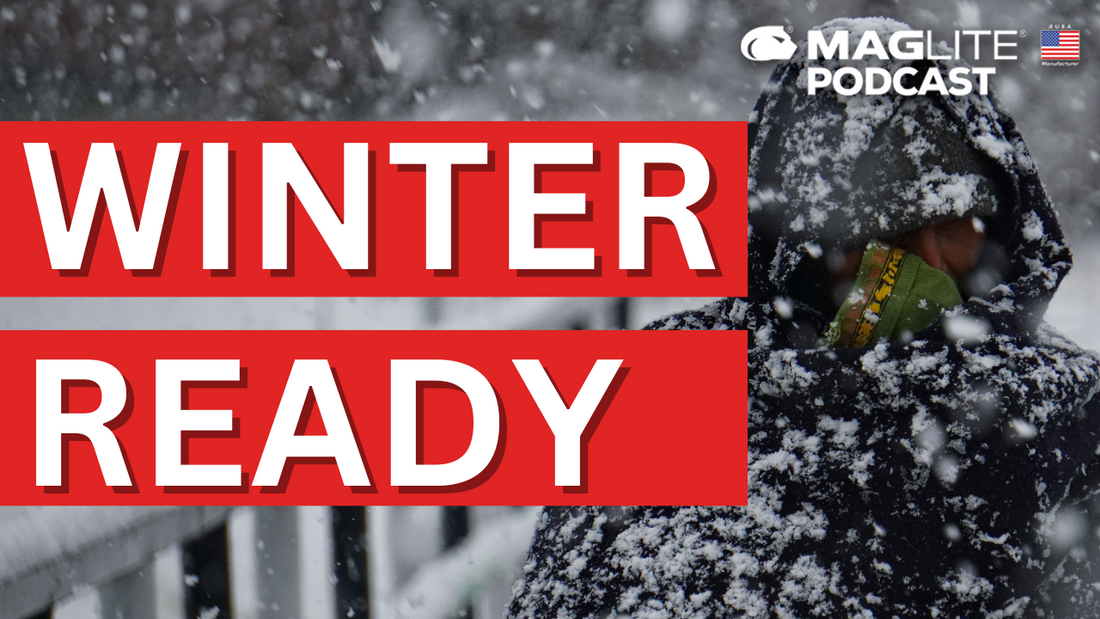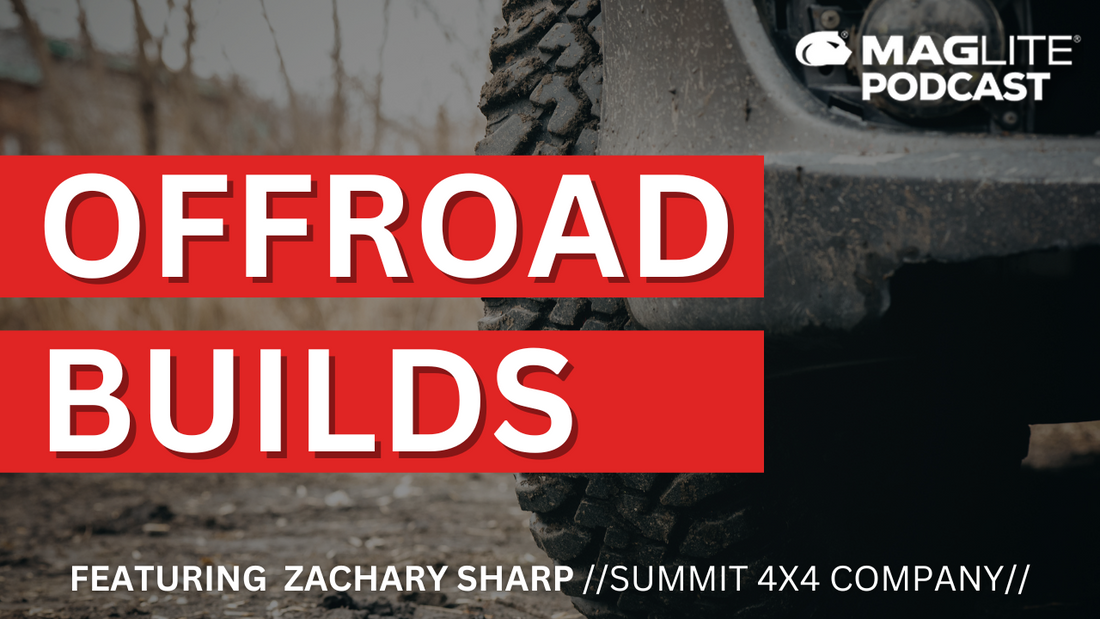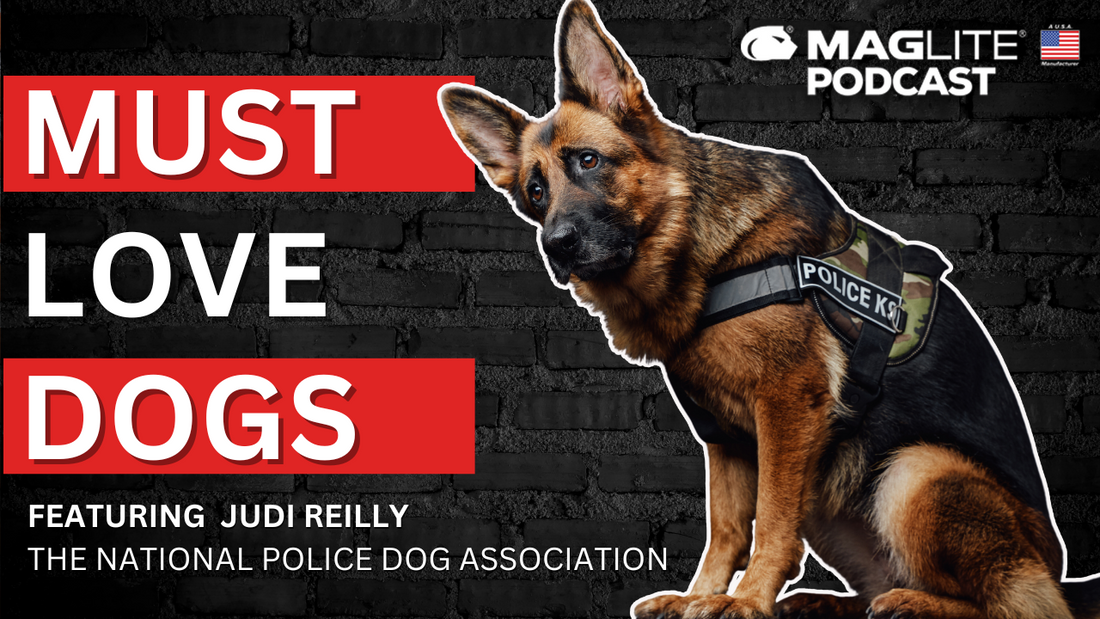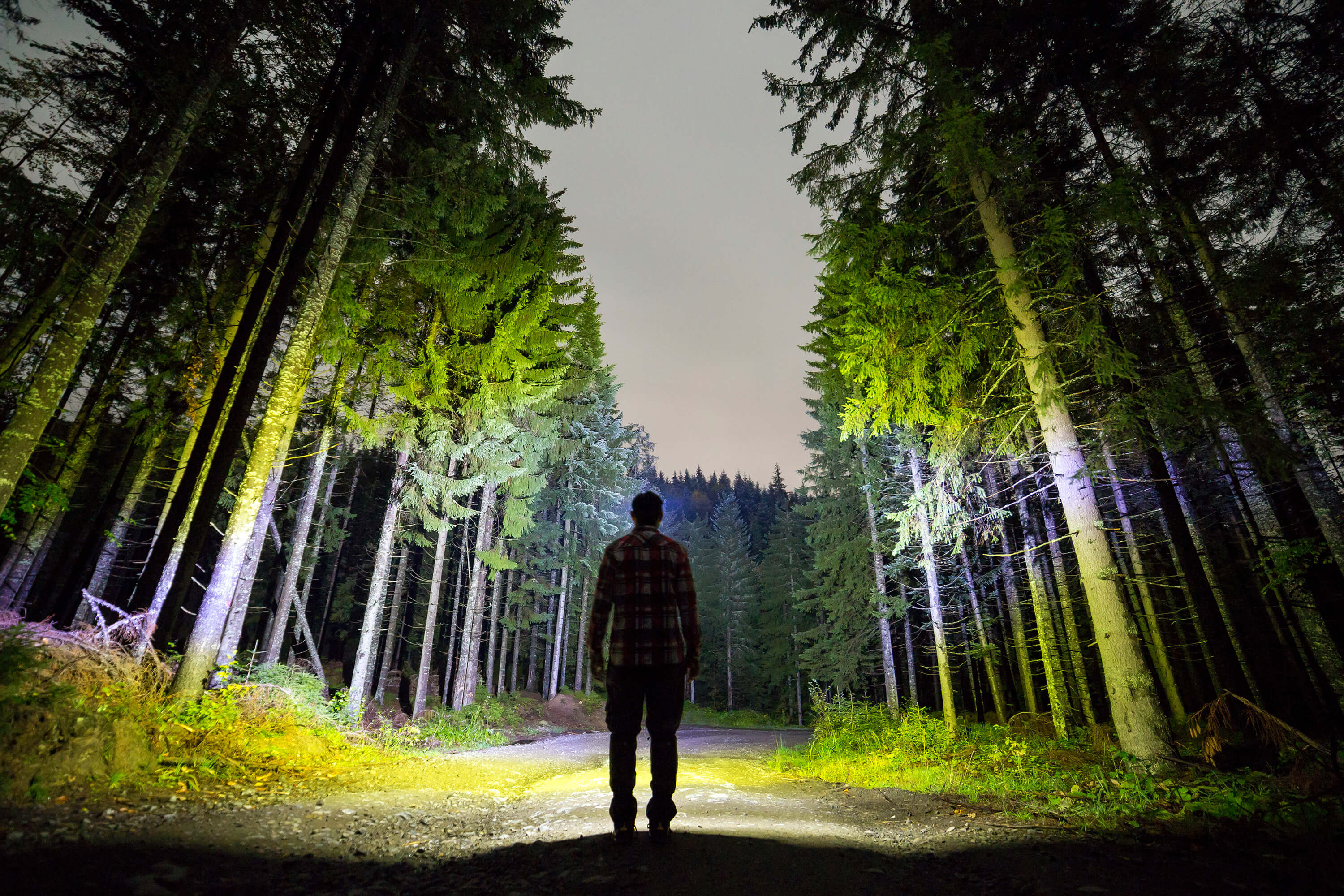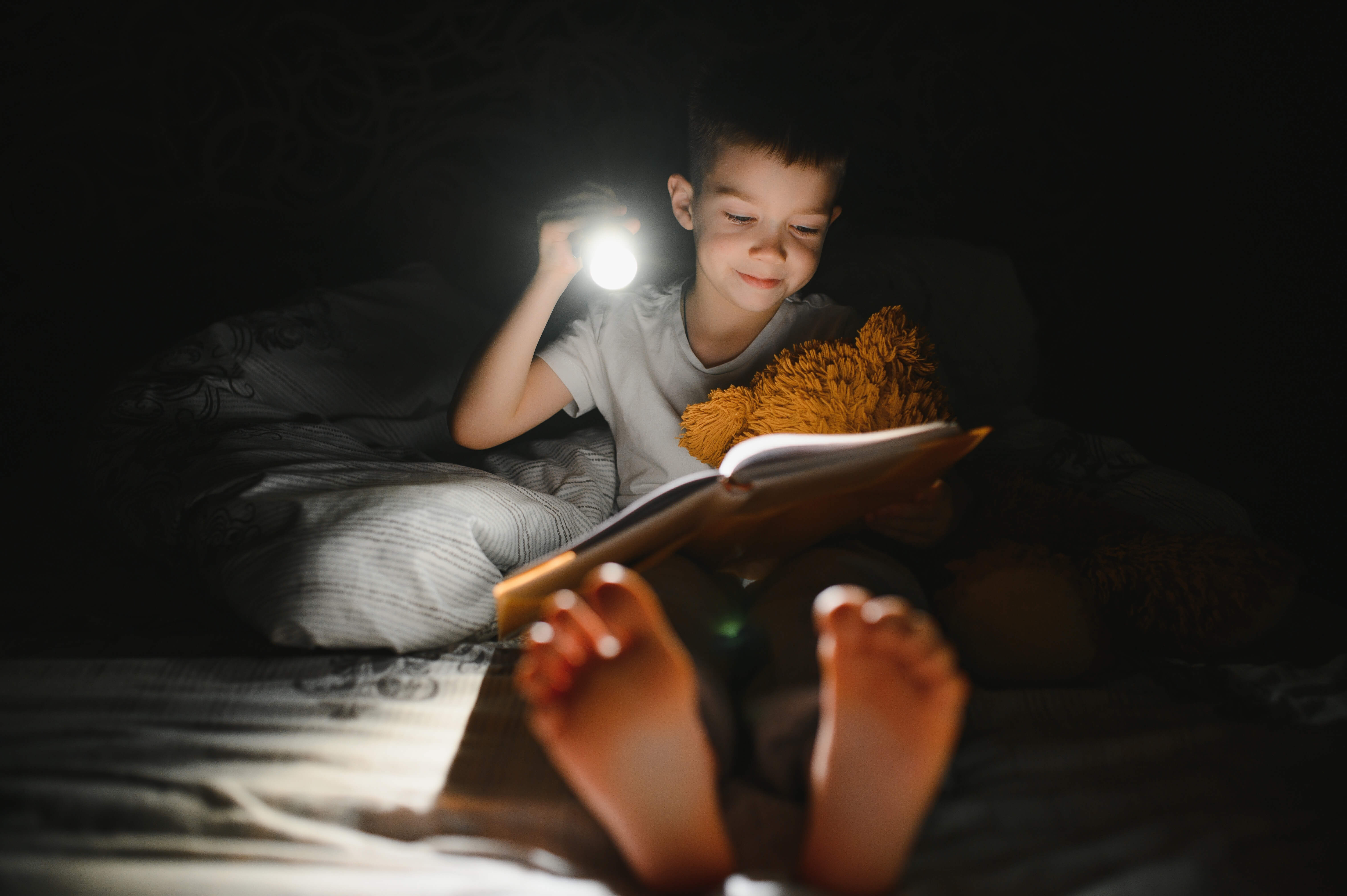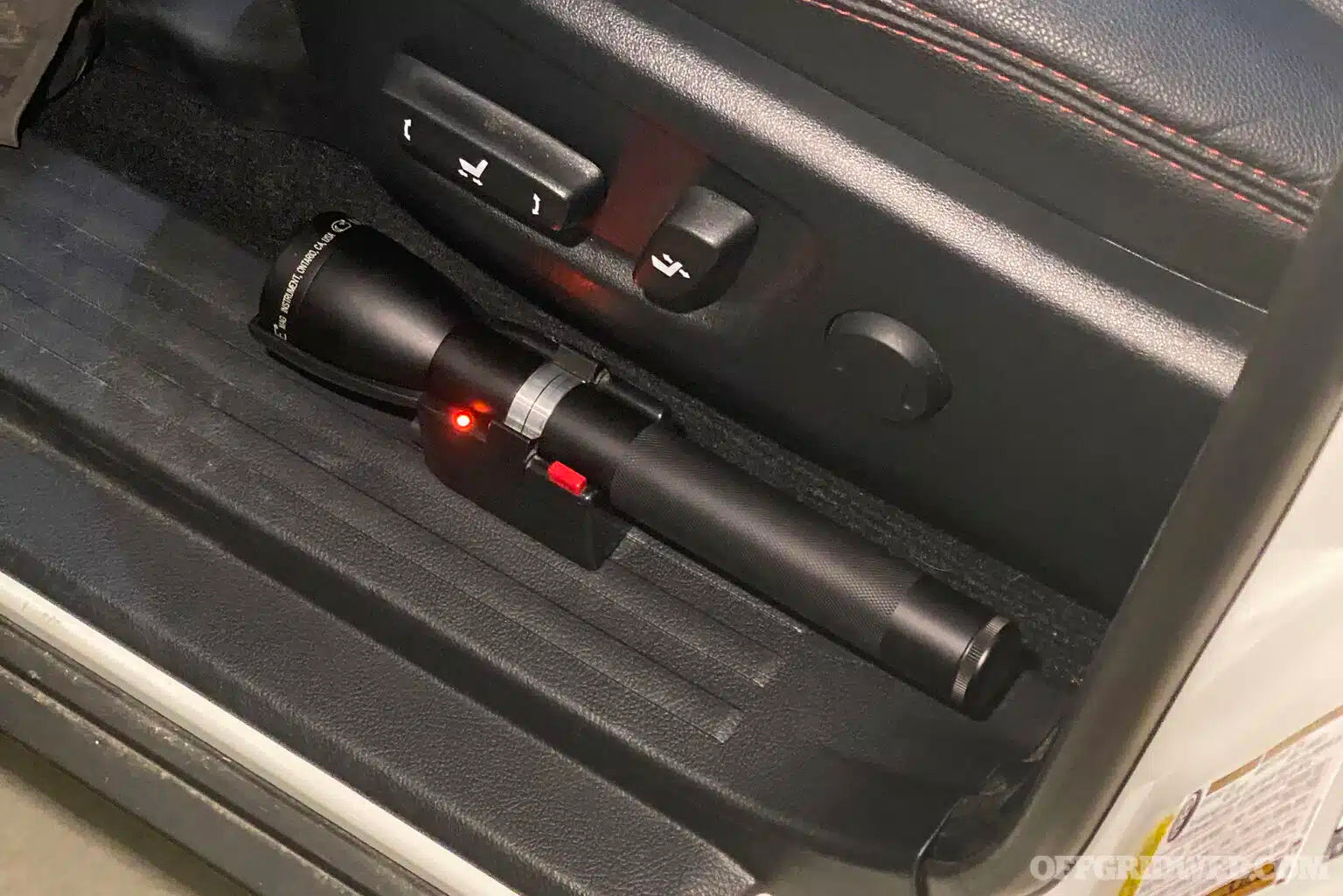Maglite:
So welcome again to the Mag Light Podcast, or for the first time, if you've never been here before, this is a very important book, whether you live in a hurricane area or not. Hurricane Preparedness for the Home and Family. Uh, you see that name right there? Haskel Moore, the author. Yeah. Well, um, that's this guy joining us here on the Mag Light Podcast. We're all about preparedness, being ready just in case the worst happens. And boy, Haskel literally wrote the book on preparedness. How many years have you worked on this in this field, Haskell?
Haskell Moore:
Oh, I started on disaster preparedness back in 1999 and started, uh, focusing on hurricane preparedness in 2005.
Maglite:
Gotcha. Of course, you live in Texas where you get monsoon-type rain as well, which by the way is happening right now, right? In a couple of areas of Texas.
Haskell Moore:
Yeah. Yeah. Dallas is, is getting hit. The Dallas area, uh, was hit rather hard. I haven't checked on the weather today, but, uh, they picked up in excess of 10 or 12 inches in, uh, like 24 hours in some areas. And in South Texas yesterday they got hammered really bad. They picked up I think five or six inches in several areas as well.
Maglite:
What makes fast-running water so dangerous?
Haskell Moore:
Well, um, people underestimate the power of fast-running water. Uh, it's incredible. Just a few inches of water can sweep you off your feet. Uh, maybe not even as much as a foot can sweep a vehicle off into a stream, a lake, a river, or a deep ditch. I've seen that happen with my own eyes. And people think because they're driving one of these big pickup trucks with giant tires on it, what they don't realize is those things are just flotation devices to the water. So, uh, people underestimating the water, how powerful it is and how quickly they can get in trouble.
Maglite:
Yeah. And there are things like down power lines in the water. You can be electrocuted. There's, um, yucky stuff in the water because the sewer system is being washed out. Uh, there are chemicals in the water because it's runoff from fields or a plant that has been overrun with water. So there are all kinds of bad things that can happen. Yeah. When you've got too much water, right?
Haskell Moore:
Yeah. As a matter of fact, um, 89% of the direct cause deaths from hurricanes are due to water, either flooding or in some cases blunt force trauma, uh, from people being, uh, slammed around into trees and things like that. So the vast majority of the direct cause of death from a hurricane, water storm surge is the biggest of those.
Maglite:
And of course, excuse me, um, when the water gets high, the power goes out.
Haskell Moore:
That's the usual case. Uh, they actually, in the, um, uh, at the power stations, at the substations, actually, they have sensors there. And when they reach a certain level of what they call leakage, uh, when they're bleeding off, uh, a certain degree of power, then the power shuts down. Hopefully, it does. Otherwise, you have what we had during Harvey where we had several electrocutions, but yeah, when the water comes up, uh, you better hope the power goes off.
Maglite:
And then when the power goes off, you have what's called nighttime,
Haskell Moore:
Right?
Maglite:
That happens every day no matter what. It does get dark at some point, and then you need a source of light.
Haskell Moore:
Absolutely.
Maglite:
You have plenty on your desk there, by the way.
Haskell Moore:
Right? These are, uh, actually just a small sampling of the, uh, over 200 flashlights that I have tested in the last couple of years. Uh, everything from cheap dollar store lights all the way up to, uh, I had one light that I recently sold. I paid $450 for it. Uh, so I've tested the whole gamut. I didn't go out and just get, uh, cheap dollar store flashlights. I tested everything from some of the very top makers and I ended up selecting this one. Uh, I'll let you tell the audience what this is if you want to.
Maglite:
Is that the Maglite ML300L?
Haskell Moore:
No other.
Maglite:
Na. So that is the ultimate disaster preparedness flashlight on eco mode for the last two weeks. Continuous use for two weeks continuous use on eco mode. So if you have a long-term disaster, this is the kind of light that you're gonna need. It throws more than a thousand lumens at full power. Popular Mechanics said it is the last flashlight you'll ever need to buy. And by the way, it can put a useful piece of light, a beam of light on something a quarter of a mile away. So for signaling, uh, if you wanna put it on flash mode, on strobe, uh, it's gonna have enough power. You're gonna get noticed. And by the way, it'll last a really long time, uh, because you don't need more than 60 lumens or so in an enclosed space, right, Haskell?
Haskell Moore:
Uh, yeah, absolutely. As a matter of fact, I, uh, I did a test recently and I had a light that only put out three lumens of light, and it was sufficient for moving around the house, seeing where you're going. And that's extremely important during a power outage. Uh, people don't realize it, but you can get hurt really badly in your own home, uh, during a power outage situation. Uh, I had a friend tell me about his wife who tripped over a dog toy after the power outage of Hurricane Ike and ended up falling, breaking her wrist in her arm. And that's a bad thing. On a good day, much less when you can't get to a hospital.
Maglite:
And when you live rural like me, there is no source of ambient light. So if it's a cloudy night or there's very little moon or no moon, or it's behind the trees or whatever it is, it's so damn dark you can't see a foot in front of your face, honestly. Right. Uh, so, and there you can also put that attachment on there and make it, uh, good for signaling as well. Absolutely. Like how that looks. All right. House school Moore, we try to keep these to five or six minutes, uh, because I have a really short attention span. <laugh>. So Lou Desmond here, Mag PR Director. This has been the Mag podcast. We're gonna bring Haskell back for one more right after this. We're to talk about storm season this year and why it's been so light and what to expect.



